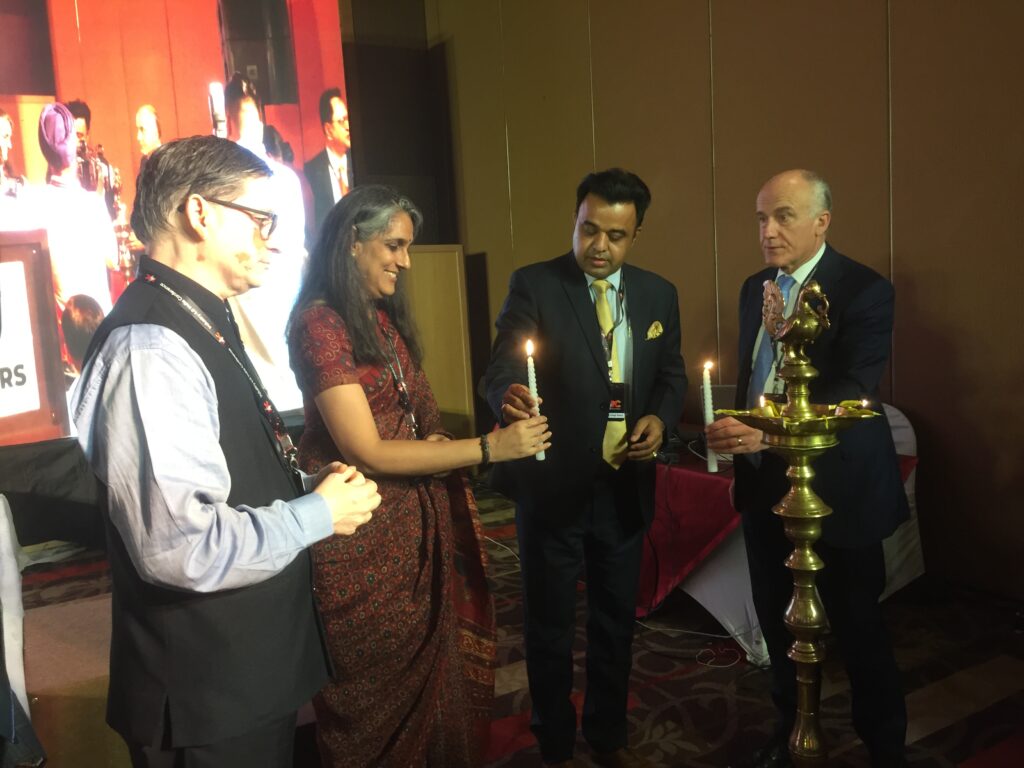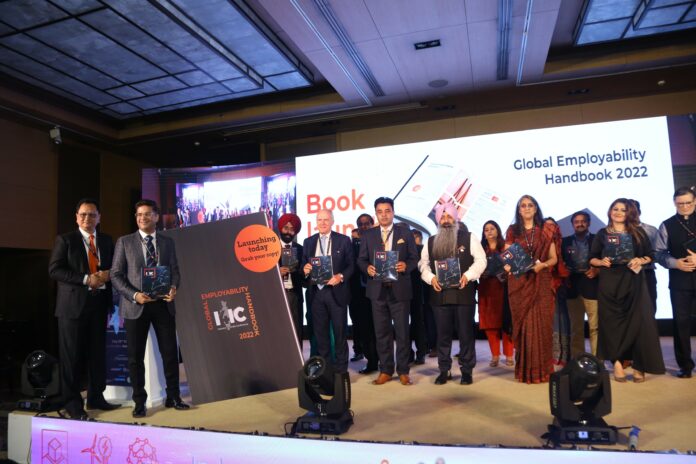New Delhi, 22nd July 2022: With industry moving towards automation and tech businesses advancing rapidly, India has ample scope to boost digital skills of students and the workforce in the country. Employability.life hosted the Industry 4.0 India Conference on Friday, July 22nd in New Delhi, in which industry executives, academic leaders and policy makers came together on a common stage to discuss how Indian higher education can prepare a new generation of students for new and emerging job opportunities.

Delivering the keynote address at the Industry 4.0 India Conference (I4IC), Dr. Manish Malhotra, Chairman & MD of Digital Commonwealth, Founder of ATMC Education Group said that over 27 million Indians will have to be digitally skilled by 2025 in order to unlock a $1 trillion digital economy. The inaugural I4IC is a key event in preparing India and the globe for the impacts of ‘Industry 4.0’ and has been organized by Employability.life, an initiative of Digital Commonwealth.
Noting that only 12% of the Indian workforce is digitally skilled, Dr. Malhotra said that 69% of current jobs are under threat of being replaced by automation. “India’s digital skill gap has the greatest GDP growth risk at an average of 2.3% per annum and India’s digitally skilled workforce needs to growth nine-fold by 2025.” said Dr. Malhotra.
Senator the Hon Eric Abetz, Patron of Indian Association for the Study of Australia (IASA), during the discussion welcomed Indian students to Australia and said the growing partnership between the two countries would only enhance the educational exchange between India and Australia. Highlighting the strategic significance of India, the Senator said, “The Indian Diaspora in Australia is the third largest group of migrants in the country. India is becoming more and more important for Australia. We would encourage as many students as possible to come to Australia, get educated and return to India and grow the economy.”
Talking of the need to focus on skill-related faculty in India, Former Secretary General of FICCI, Mr Dilip Chenoy said that there are instances in the country where the faculty is not trained in digital skills and there is an urgent need to train them.
He also emphasized that states should try to take up initiatives under the umbrella schemes of the centre, which would help give a better synchronization of efforts.
The discussion was also attended by Ms. Kirti Sethi, CEO, Sector Skill Council, NASSCOM, who was of the view that executions of schemes and initiatives holds the key to growth of digital skills in the country.
Prominent speakers at the conference included senior representatives from bodies such as AICTE, NSDC, and NASSCOM; senior academic leaders from top Indian universities; representatives from various chambers of commerce, and senior corporate officials.

